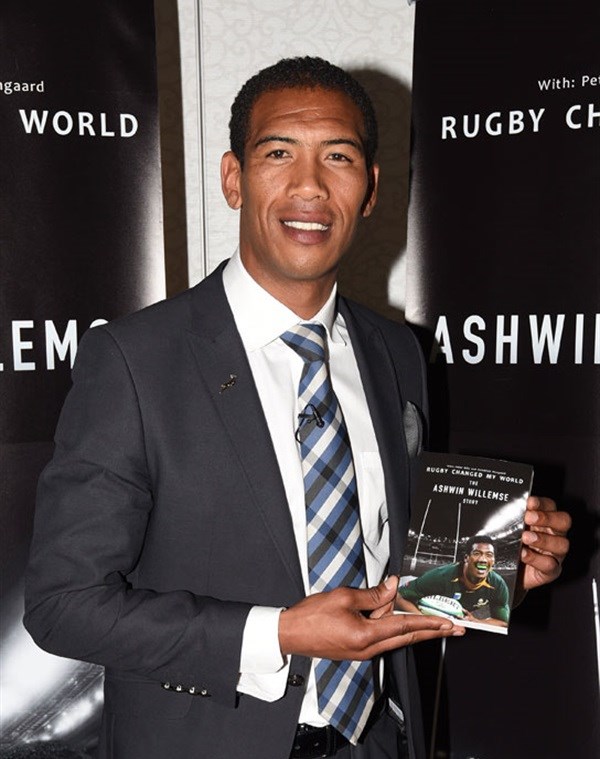






The book takes a raw, intensely self-revealing look at the life of Willemse who records his childhood pain, and adolescent descent into drugs and gangsterism with a level of honesty that allows the reader to feel his anguish.
He pulls no punches as he takes us on a journey that shows the unravelling of a youngster in searing pain, of his salvation through the game of rugby, and of the ultimate redemption: Willemse today is a rugby analyst on SuperSport, a world renowned international motivational speaker and a highly respected entrepreneur.
Rugby saved his life. "If I look at myself, I simply cannot ignore the impact that rugby has had on my life. It has been a point of direction, made me goal oriented. I owe a lot to rugby."
The story begins with the birth of baby Ashwin in Caledon in the Western Cape in September 1981. He has few memories of the very early years, only that when he was just two years old, his father left his mother and her young son.
The schism has stayed with him all his life, and he attributes this separation from his dad, his male role model, for his troubled teenage years. It would take him two decades to find and reconnect with his father. All he had to go on was his father's name and the fact that he lived in Johannesburg.
"I was desperate to find my father, to reconnect with him. I looked at every man, every stranger, and tried to find my father in them. My father's leaving was, I think, the thing that led me down the path to self-destruction. "I became associated with gangsters and with drugs. As a teenager, I tried to commit suicide. I wanted to stop living. My father's actions had a lot to do with how lost I felt."
Willemse finally met up with his father 20 years after he'd last seen him - when he was just two years old. The long and arduous search for his missing parent had been gruelling, and frustrating and infuriating. Then, at last, they are in the same room, looking into each other's eyes. In the book, he writes this section with such tension that the reader feels as though they are walking on egg shells - very carefully so as not to upset the tone the author uses to detail this first meeting.
"I think it was a moment of self-discovery - I was confronted by my reality and not the reality I had created in my imagination. I finally had closure." Six months after they'd met, his father died of natural causes, something that he is immeasurably sad about.
The rugby player has had an extraordinary life. This book is the telling of it, of his journey of self-discovery. Much of his sadness was about being abandoned by his father, whose leaving left a void that was only later partially filled by rugby. He says he was raised by loving grandparents, who gave him their unstinting support, something he treasures to this day.
In fact, he puts his success down to the fact that they pushed their grandson to dream big and to achieve his goals. He is also very grateful for the love of his beloved mother Gustava Grootboom, and to a teacher who suggested that rugby might be a way for Willemse to channel his anger, frustration and rage. It worked.